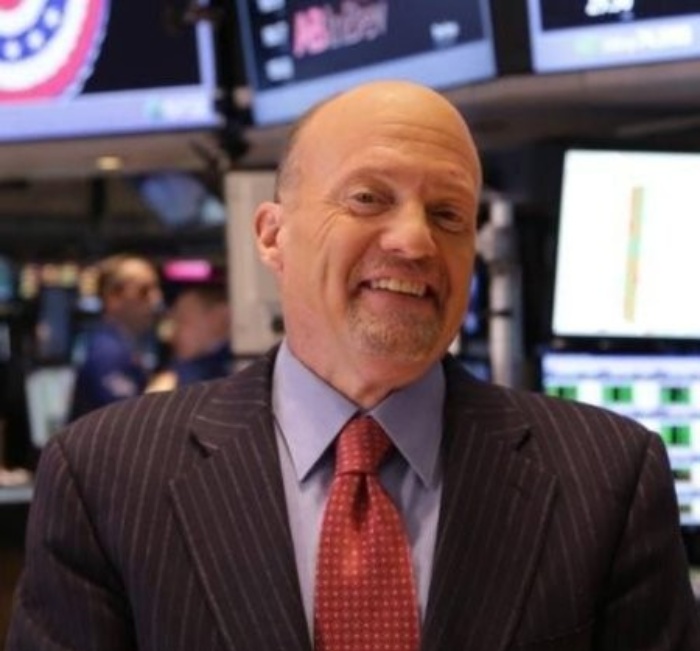Welcome to The WC — your weekly shot of awesome.
Today, we’ve got:
- A uranium rush
- A tarnished repulation
- A new bad guy
- An unexpected source of income
- A terrible idea
Table of Contents
The next bubble?
Last week, we dug into a lithium deposit buried under a volcano in Nevada. Sunday, Stefan wrote all about investing in rare earth metals. Today, our sponsor (below) is a rare earth metals investment company.
Search volume for “rare earth metals” is up 70% month over month.
Over the last few weeks, I’ve seen a lot of chatter about uranium, which isn’t a rare earth metal, but it sort of feels like one for our purposes. Search volume for the element is up 33% month over month.
Some idiot is tokenising uranium.
“Hey dude. Listen to me man, it’s fucking uranium. On a fucking blockchain dude, gonna be the next big thing. Fucking awesome, uh, yeah, fuck it. Yeah, let’s tokenize that shit.” https://t.co/SPo7t4qARP pic.twitter.com/qnv7r0Ong9
— knower (@knowerofmarkets) October 4, 2023
The pattern is beginning to whisper to me.
Here’s what’s up with uranium, according to Harris “Kuppy” Kupperman. He wrote a slightly convoluted but compelling piece detailing his observations at the World Nuclear Association (WNA) conference in London.
- He draws parallels between the movie “The Big Short” and the uranium industry, particularly highlighting a lack of awareness among industry participants about looming supply deficits.
- Based on Kuppy’s projections, there will be a significant imbalance between supply and demand of uranium by 2024, potentially leading to a deficit of 50 million pounds ($2.5 billion worth). The deficit could get worse under certain conditions.
- Industry insiders at the conference were largely unconcerned about these looming deficits and their consequences. Many attendees had not considered various risks, such as counter-party and geopolitical risks in their supply chain.
- The author concludes that the industry is far from recognizing the gravity of the situation, making him even more bullish on uranium. He anticipates not just a price increase, but a “super-spike” that could shock the industry.
The spot price for uranium is up around 15% over the last twelve months, and if he’s right, there’s an opportunity here.
No doubt the world of uranium investing is opaque, volatile and just plain weird. But that doesn’t mean there isn’t something here. Plus, any excuse to rewatch The Big Short.
I’ll be digging into this further and may look at it for our ALTS 1 fund.
Dig deeper:
- Nukes Are Back, but Uranium Is in Short Supply (WSJ)
- Supply of Uranium (WNA)
- Uranium Markets (WNA)
What’s a reputation worth?
Speaking, more or less, of The Big Short, what’s going on in Michael Lewis’s head?
Lewis is famous for digging into and–often–eviscerating conventional wisdom and bad actors. Dig into the data, figure out what’s really going on, and focus on a protagonist who will show everyone the emperor is naked.
For 25 years he rattled off hit after hit including Liar’s Poker, Moneyball, The Blind Side, The Big Short, and Flash Boys. Professionally, I grew up on a steady diet of his writing.
But since 2014, his work has been notably less impressive. The Undoing Project, The Fifth Risk, and The Premonition: A Pandemic Story have been mostly (for me) awful.
But!
When I heard Lewis had stumbled into the opportunity of a lifetime — unfettered access to San Bankman-Fried (SBF) for the year before FTX’s collapse — I rejoiced.
The crime of the decade as told by our generation’s greatest business journalist.
And the book is dross.
We expected an insider’s view of how a criminal mastermind works. And Lewis treats SBF with kid gloves.
Lewis went into the job thinking SBF was one of his good guys — another Billy Beane — and was mentally incapable of shifting that view when the facts changed.
I’m not sure he can come back from this.
Dig deeper:
- The 3 Most Important Things to Know About Michael Lewis’s SBF Book (NY Mag)
- Is Michael Lewis Throwing Out His Reputation to Defend Sam Bankman-Fried? (Coindesk)
- Read The Times’ scathing, prescient review of Michael Lewis’ ‘The Blind Side’ (LAT)
Are we the baddies?
Painkiller is the story of how Purdue Pharma and the Sackler family peddled opiods to millions of people regardless of the risks they knew existed. It’s a horrific story, and just recently I learned it left out a significant antagonist — McKinsey.
McKinsey advised opioid makers on how to “turbocharge” sales of OxyContin, proposed strategies to counter the emotional messages from mothers with teenagers who overdosed on OxyContin, and helped opioid makers circumvent regulation.
Further
The firm also advised Purdue Pharma to offer pharmacies rebates based on the number of overdoses and addictions they caused. In 2019, McKinsey projected that over 2,400 CVS customers would have an overdose or become reliant on opioids.
The firm has settled twice now without admitting any fault:
- $600 million to the states
- $230 to school districts and localities
- Their statement is deeply unsatisfying.
One of those stories with no winners.
Unexpected natural resources
How about a feel good story?
The tiny island country of Anguilla is an unexpected beneficiary of the AI boom. The territory’s top level domain (TLD) is .ai.
Every time a company wants to register a website that ends in .ai (here are 768 of them), they’ve got to pay a fee to Anguilla.
The 16,000 person island now makes $3 million per month on these registrations. That’s 1/3 of the government’s budget.
Another winner in this space? Tuvalu, which reports suggest earns $10 million per year for its .tv domain. “That revenue has allowed Tuvalu to pave its roads, expand electricity access for its residents, and even pay its first annual United Nations membership in 2000.”
Micronesia (.fm), Montenegro (.me), Djibuti (.dj), and others have benefited as well.
This’ll go over like a lead balloon
Remember airships? Like the Hindenberg?
There’s a case for bringing them back!
How Airships could unlock a $650 billion dollar carbon-free long-distance freight market
— Andrew Côté (@Andercot) September 26, 2023
The engineering scaling laws behind airships are incredibly compelling and could revolutionize transoceanic freight. But, they're unpopular for the wrong reasons.
Here's the econo-physics… pic.twitter.com/hnprGEODDd
Nope nope nope nope nope.
That’s all for this week; I hope you enjoyed it.
Cheers,
Wyatt
Disclosures
- This issue was sponsored by our friends at WebStreet and Strategic Metals Invest.
- Our ALTS 1 Fund invested in WebStreet’s Fund 5.












